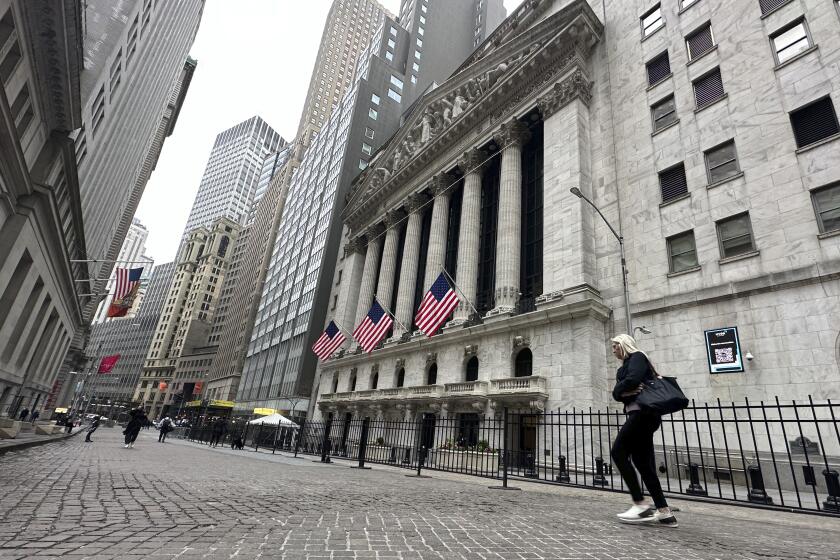Northrop Loses Attempt to Dismiss Fraud Lawsuit : Defense: Employees are charging that the firm overcharged the government on the B-2 Stealth bomber by about $20 billion.
A U.S. district court judge Monday rejected Northrop Corp.’s request that she dismiss a civil fraud case, filed by current and former company employees, which alleges that Northrop has overcharged the government by about $20 billion on the B-2 Stealth bomber program.
After lengthy and heated arguments in the increasingly hostile case, U.S. District Judge Mariana R. Pfaelzer said she would allow the case to continue. At one point, she admonished the lawyers: “Excuse me gentlemen. This is my courtroom. Calm down.”
Pfaelzer spurned contentions by Northrop lawyer P. David Richardson that the plaintiffs had not filed specific enough charges to justify the case going forward.
The thrust of the complaint in the massive suit is that Northrop’s performance on the B-2 has been riddled with fraud from its initial work and that it has used a host of methods to overcharge the government.
These allegations include giving the government falsified progress reports on its production of the B-2, submitting false data on the amount of money spent to perform work on the B-2, mischarging labor costs, submitting false vouchers for the purchase and procurement of parts and materials and knowingly misrepresenting the progress made in the production and engineering status of a key electronics system.
The original suit was filed in February, 1988, and it has been amended three times by plaintiff’s lawyer Herbert Hafif of Claremont.
The suit was filed under the Federal False Claims Act, which allows private citizens to file suits on behalf of the government and share in any damages that the government ultimately recovers. The statute allows the government 60 days to decide whether to intervene in a False Claims action and allows the government to take over any such suit, though the original plaintiffs are permitted to retain an active role in the case.
In November, 1988, the Justice Department announced that it had declined to intervene in this case. However, in November, 1989, after Hafif filed the latest amendment to the case, it was learned that the Justice Department had reopened its investigation of the case.
On Monday, Assistant U.S. Atty. Howard F. Daniels requested that the government be given 90 days to decide whether to intervene in the case. Judge Pfaelzer granted the request.
Cases filed under the False Claims Act normally are kept secret, under seal, in an attempt to allow the Justice Department to conduct its investigation unimpeded. In early November, when Hafif amended the suit, Judge Pfaelzer unsealed the case after a court hearing.
However, upon Hafif’s request, she resealed the case again Monday for at least 90 days. The judge said it had been her clear impression that Hafif’s associate, Philip Benson, had wanted the case unsealed. But Hafif said he felt that was a misunderstanding and Pfaelzer granted the request.






